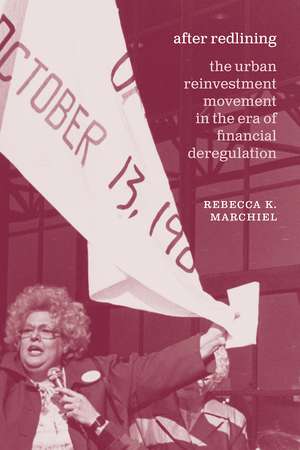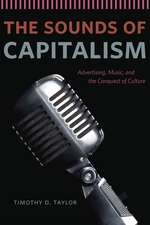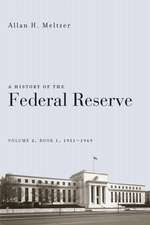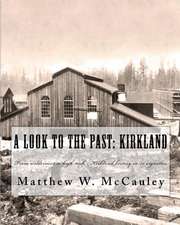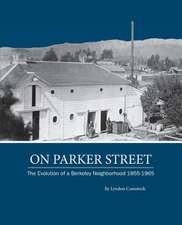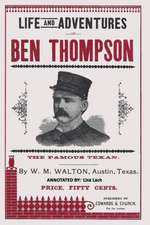After Redlining: The Urban Reinvestment Movement in the Era of Financial Deregulation: Historical Studies of Urban America
Autor Rebecca K. Marchielen Limba Engleză Hardback – 2 sep 2020
American banks, to their eternal discredit, long played a key role in disenfranchising nonwhite urbanites and, through redlining, blighting the very city neighborhoods that needed the most investment. Banks long showed little compunction in aiding and abetting blockbusting, discrimination, and outright theft from nonwhites. They denied funds to entire neighborhoods or actively exploited them, to the benefit of suburban whites—an economic white flight to sharpen the pain caused by the demographic one.
And yet, the dynamic between banks and urban communities was not static, and positive urban development, supported by banks, became possible. In After Redlining, Rebecca K. Marchiel illuminates how, exactly, urban activists were able to change some banks’ behavior to support investment in communities that they had once abandoned. The leading activists arose in an area hit hard by banks’ discriminatory actions and politics: Chicago’s West Side. A multiracial coalition of low- and moderate-income city residents, this Saul Alinsky–inspired group championed urban reinvestment. And amazingly, it worked: their efforts inspired national action, culminating in the federal Home Mortgage Disclosure Act and the Community Reinvestment Act.
While the battle for urban equity goes on, After Redlining provides a blueprint of hope.
| Toate formatele și edițiile | Preț | Express |
|---|---|---|
| Paperback (1) | 300.41 lei 43-57 zile | |
| University of Chicago Press – 5 sep 2021 | 300.41 lei 43-57 zile | |
| Hardback (1) | 224.94 lei 22-36 zile | +28.95 lei 5-11 zile |
| University of Chicago Press – 2 sep 2020 | 224.94 lei 22-36 zile | +28.95 lei 5-11 zile |
Din seria Historical Studies of Urban America
-
 Preț: 214.33 lei
Preț: 214.33 lei -
 Preț: 153.89 lei
Preț: 153.89 lei -
 Preț: 203.46 lei
Preț: 203.46 lei -
 Preț: 132.84 lei
Preț: 132.84 lei -
 Preț: 201.36 lei
Preț: 201.36 lei -
 Preț: 196.41 lei
Preț: 196.41 lei -
 Preț: 200.74 lei
Preț: 200.74 lei -
 Preț: 178.45 lei
Preț: 178.45 lei -
 Preț: 185.70 lei
Preț: 185.70 lei -
 Preț: 215.23 lei
Preț: 215.23 lei -
 Preț: 185.94 lei
Preț: 185.94 lei -
 Preț: 205.71 lei
Preț: 205.71 lei -
 Preț: 348.08 lei
Preț: 348.08 lei -
 Preț: 283.69 lei
Preț: 283.69 lei -
 Preț: 245.49 lei
Preț: 245.49 lei -
 Preț: 264.85 lei
Preț: 264.85 lei -
 Preț: 233.25 lei
Preț: 233.25 lei -
 Preț: 218.74 lei
Preț: 218.74 lei -
 Preț: 325.05 lei
Preț: 325.05 lei -
 Preț: 249.51 lei
Preț: 249.51 lei -
 Preț: 246.09 lei
Preț: 246.09 lei -
 Preț: 277.90 lei
Preț: 277.90 lei -
 Preț: 273.67 lei
Preț: 273.67 lei -
 Preț: 290.90 lei
Preț: 290.90 lei -
 Preț: 192.30 lei
Preț: 192.30 lei -
 Preț: 261.59 lei
Preț: 261.59 lei -
 Preț: 310.30 lei
Preț: 310.30 lei -
 Preț: 227.36 lei
Preț: 227.36 lei -
 Preț: 283.30 lei
Preț: 283.30 lei -
 Preț: 246.86 lei
Preț: 246.86 lei -
 Preț: 260.82 lei
Preț: 260.82 lei -
 Preț: 275.92 lei
Preț: 275.92 lei -
 Preț: 241.19 lei
Preț: 241.19 lei -
 Preț: 273.80 lei
Preț: 273.80 lei -
 Preț: 271.67 lei
Preț: 271.67 lei -
 Preț: 247.40 lei
Preț: 247.40 lei -
 Preț: 351.69 lei
Preț: 351.69 lei -
 Preț: 267.82 lei
Preț: 267.82 lei -
 Preț: 287.33 lei
Preț: 287.33 lei -
 Preț: 262.41 lei
Preț: 262.41 lei -
 Preț: 232.27 lei
Preț: 232.27 lei
Preț: 224.94 lei
Nou
Puncte Express: 337
Preț estimativ în valută:
43.06€ • 46.78$ • 36.19£
43.06€ • 46.78$ • 36.19£
Carte disponibilă
Livrare economică 31 martie-14 aprilie
Livrare express 14-20 martie pentru 38.94 lei
Preluare comenzi: 021 569.72.76
Specificații
ISBN-13: 9780226723648
ISBN-10: 022672364X
Pagini: 296
Ilustrații: 12 halftones
Dimensiuni: 152 x 229 x 25 mm
Greutate: 0.54 kg
Ediția:First Edition
Editura: University of Chicago Press
Colecția University of Chicago Press
Seria Historical Studies of Urban America
ISBN-10: 022672364X
Pagini: 296
Ilustrații: 12 halftones
Dimensiuni: 152 x 229 x 25 mm
Greutate: 0.54 kg
Ediția:First Edition
Editura: University of Chicago Press
Colecția University of Chicago Press
Seria Historical Studies of Urban America
Notă biografică
Rebecca K. Marchiel is assistant professor of history at the University of Mississippi.
Cuprins
Introduction. Neighborhoods First
Chapter 1. Beyond the Backlash: Organizing against Real Estate Abuse in a “Transitional” Urban Neighborhood
Chapter 2. The FHA in the City: Red Lines and the Origins of the Urban Reinvestment Movement
Chapter 3. It’s Our Money: Defending Financial Common Sense in a Collapsing New Deal Order
Chapter 4. Communities Must Be Vigilant: The Financial Turn in National Urban Policy
Chapter 5. Reinvestment for Whom? The Limits of Bank-Led Reinvestment
Chapter 6. Let’s Make the Market Work for Us: The Lost Fight for Credit Allocation and the Rise of Community-Bank Partnerships
Conclusion
Chapter 1. Beyond the Backlash: Organizing against Real Estate Abuse in a “Transitional” Urban Neighborhood
Chapter 2. The FHA in the City: Red Lines and the Origins of the Urban Reinvestment Movement
Chapter 3. It’s Our Money: Defending Financial Common Sense in a Collapsing New Deal Order
Chapter 4. Communities Must Be Vigilant: The Financial Turn in National Urban Policy
Chapter 5. Reinvestment for Whom? The Limits of Bank-Led Reinvestment
Chapter 6. Let’s Make the Market Work for Us: The Lost Fight for Credit Allocation and the Rise of Community-Bank Partnerships
Conclusion
Acknowledgments
List of Abbreviations for Archival Collections
Notes
Index
List of Abbreviations for Archival Collections
Notes
Index
Recenzii
“Recommended. This engaging book describes the successes and failures of energetic and committed neighborhood reconstruction activists. . . Marchiel’s compelling story of heroic activists fairly appraises the NPA, making this a useful text for activists and scholars in urban studies and financial market studies.”
"Deeply researched. . . Marchiel’s narrative paints the picture of a remarkably powerful national reinvestment campaign against an almost unstoppable force of ever more inventive flows of capital. . . . Marchiel has written an important history that not only portends contemporary financialization but also offers a glimpse into the tactics and strategies to challenge it."
"Marchiel has written an important history that not only portends contemporary financialization but also offers a glimpse into the tactics and strategies to challenge it."
"After Redlining offers illuminating correctives to falsehoods advanced by the powerful. . . After Redlining joins the ranks of scholarly histories highlighting Chicago as the imperfect locus of grassroots, multiracial, multiethnic activist organizations that changed the status quo of their time in ways that still ameliorate aspects of our unjust present. What is more, Marchiel’s account of the reinvestment movement’s go-bigger-or-go-home strategy offers a relevant historical perspective to contemporary activists who face, along with the communities for whom they advocate, a treacherously uncertain future."
“The role of financial institutions in the segregation of urban America has been the subject of important recent works, but we still have much to learn about how citizens and activists challenged discrimination and exploitation by the banks. After Redlining not only fills that gap but challenges our understanding of the history of race, finance, and inequality. Marchiel’s compelling story will leave many readers shaking their heads in frustration at the comparative lack of grassroots activism against financial discrimination and predation today, while at the same time inspired by the tenacity, savvy, and ingenuity of the organizers who fill its pages.”
“After Redlining is a compelling and revelatory history of community activism, American banking, and the politics of inequality. Marchiel details how common-sense ideas about place, power, and economic fairness informed the work of ‘grassroots financial regulators’ who altered the national urban policy landscape, all the while moving seamlessly between rich local stories, Washington, DC, and a seismic restructuring of financial markets that undercut progressive reform. Essential reading on the persistent tension between finance and democracy in American history.”
"Discusses the relationship between urban community groups and their financial institutions during the last third of the twentieth century, presenting the story of the reinvestment movement’s lead organization in Chicago, the National People’s Action (NPA), and its impact on federal urban and banking policy."
"Marchiel describes the efforts of a Saul Alinsky-inspired multiracial coalition of US low- and moderate-income city residents to combat the effects of redlining... [and finds] that these efforts inspired national action..."
"After Redlining stands as a case study of populist activism that remains salient to a twenty-first-century audience because urban majorities still face the same issues and concerns, from access to mortgage credit and local banking services to general ideas about urban equity. It stands as an important if limited focus on the potential local neighborhood activism still has to channel hope for a progressive and egalitarian future in late capitalist America. It should interest scholars and teachers of twentieth-century America as well as urban studies generally."
